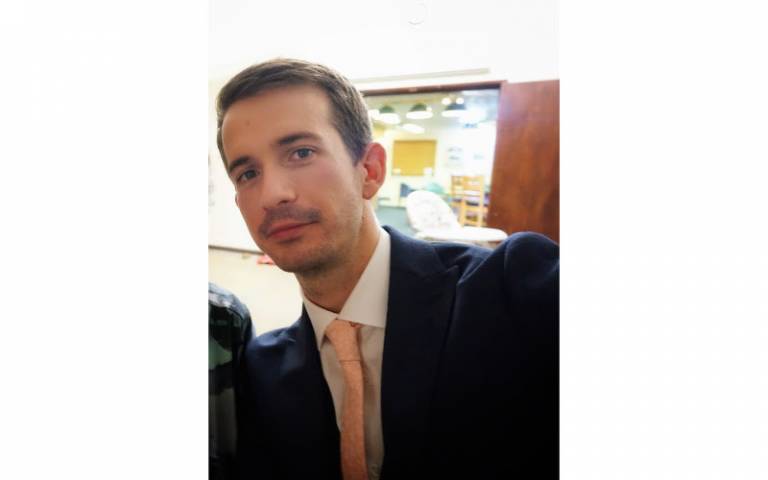Welcome to new Birkbeck Lecturer in Astrobiology, Dr Andrew Rushby
7 October 2021
The CPS welcomes Dr Andrew Rushby as a new Lecturer in Astrobiology in the Department of Earth and Planetary Sciences at Birkbeck, from November 2021.

Andrew is an astrobiologist with an interest in the biogeochemical factors that affect the habitability of small, rocky planets. His research is driven by the use of climate models of varying complexities, from simple energy-balance models to study the effects of the generalised climate of newly-discovered exoplanets and the ice-albedo feedback, up to complex 3D global circulation models (GCMs) that can determine the structure and dynamics of planetary atmospheres under a range of astrophysical conditions. Andrew's interdisciplinary background began with a PhD in Biogeochemistry from the Centre for Ocean and Atmospheric Science at the University of East Anglia in 2015, followed by postdoctoral positions at the University of California, Irvine, and NASA Ames Research Center. At NASA Ames, Andrew assisted in the management of NASA's Nexus for Exoplanet System Science (NExSS) - an interdisciplinary research coordination network that sought to bring together disparate planetary scientists, astrophysicists, Earth scientists, and heliophysicists in the US and beyond to advance our understanding of planetary habitability and biosignatures.
Along with Prof Ian Crawford and Dr Lauren Mc Keown from the Department for Earth and Planetary Sciences at Birkbeck, Andrew will be involved in developing one of the UK's few astrobiology undergraduate programmes, due to start in October 2022, with a postgraduate MSc degree launching in 2023. This will involve taking over teaching the existing 'Introduction to Astrobiology' module that currently runs as part of the 'Planetary Science and Astronomy' degree programme, as well as developing new modules covering advanced topics in astrobiology research.
Throughout my relatively short career in astrobiology, students in both in the US and UK have repeatedly asked me where they can study for an astrobiology degree - I am very excited that Birkbeck/UCL has recognised this desire for a rigorous interdisciplinary programme that will equip students with the tools to become leaders and researchers in a highly competitive, fast-moving area of the physical sciences that includes discoveries of planets around other stars in our galaxy, the robotic exploration of our solar system and the Earth's deep oceans and extreme environments, as well as the search for the origin of life in the lab and fossil record. From a philosophical standpoint, the study of astrobiology can offer a universalist perspective that may allow us to better appreciate and understand our dynamic planet and diverse biosphere. The UK is well placed to become a global leader in astrobiology research, and, through globally-recognised excellence in teaching and research, UCL/Birkbeck is poised to be at the forefront.
Andrew is also a passionate science communicator; he has co-hosted Exocast, a podcast discussing all things related to exoplanetary science and astrobiology, since 2015 and was shortlisted for the Guardian and Wellcome Trust Science Writing Prize in 2012.
Links
- Dr Andrew Rushby's website
- The Department of Earth and Planetary Sciences, Birkbeck
- Exocast - The exoplanet podcast
 Close
Close

